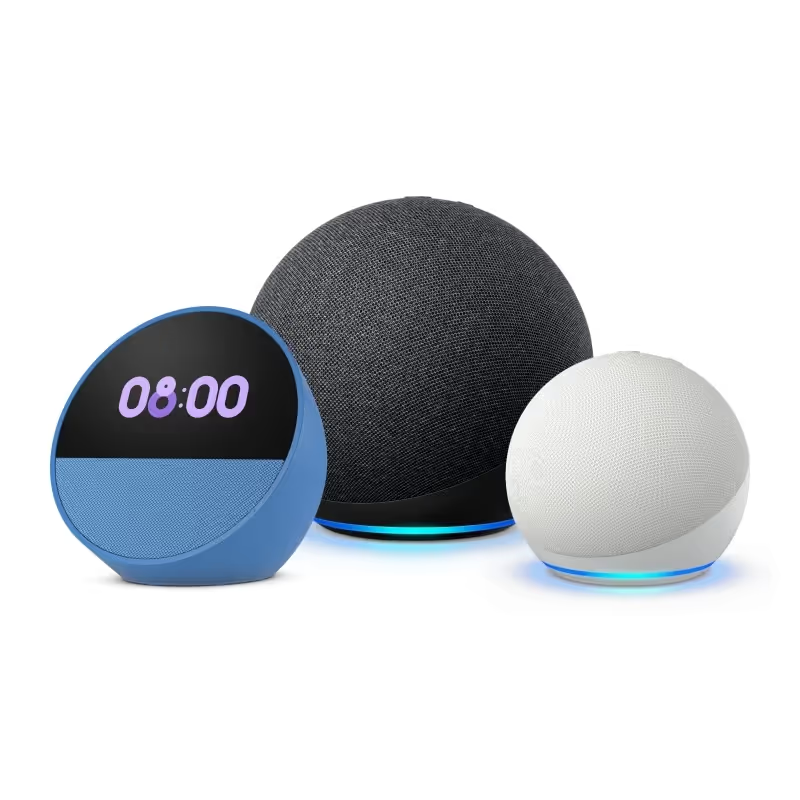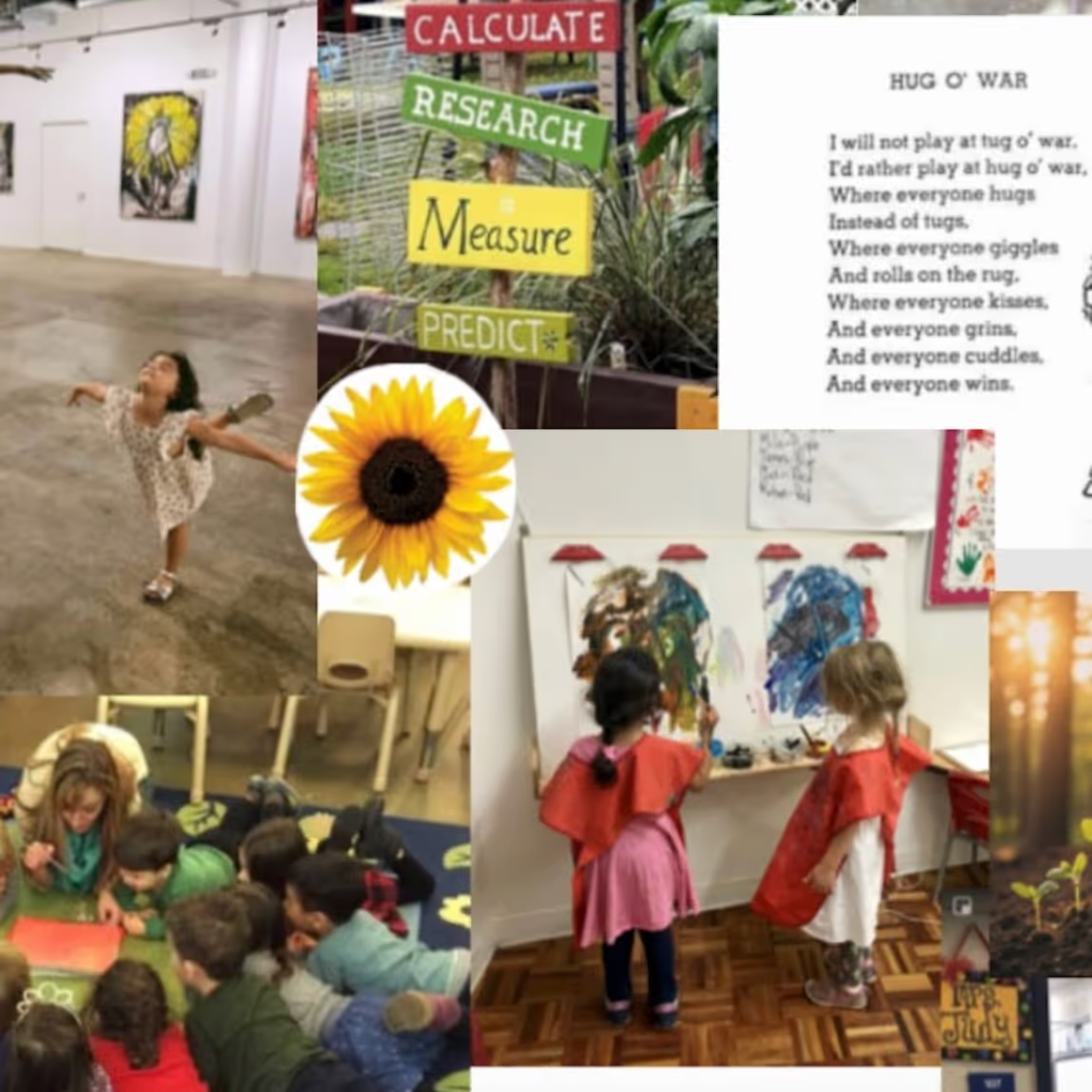


School has started for some of your children and is right around the corner for others. Schools are, of course, full of tech, which also means they are full of A.I. All those little algorithms are taking their cues, making their moves, and, at times, helping students or hindering them with constructive and destructive capabilities.
I’ll start with a personal example of when A.I. can be constructive. I had never experienced the eeriness of A.I. until I finally started using the Spotify account my kids signed our family up for. It knocked my socks off because I either loved or at least really liked 95% of its suggested songs.
Spotify’s A.I. was reading my mind, my soul, and my teen memories. It was amazingly spot-on in picking music I liked.
You should also know I have had the same playlist of 12 songs for the last two years. I don’t listen to music much, and when I do, it’s when I am in a good mood and want to dance for a few minutes. It was definitely about time that I benefited from A.I.’s music-picking genius. (BTW, here are a few songs from my original playlist of 12 songs: “Move on Up” by Curtis Mayfield, “C’est La Vie” by Robbie Nevil, and “Come and Get Your Love” by Redbone, a song we were thrilled to be able to feature in Screenagers Next Chapter).
Meanwhile, there are times when A.I. can be troubling. It is common knowledge that algorithms on different social media platforms can lead people down unhealthy and dangerous paths — think about users who look up nutrition and are instead led to content promoting anorexia, or teens who look up the harms of a drug and, instead, are taught how to use it.
Learn more about showing our movies in your school or community!
Join Screenagers filmmaker Delaney Ruston MD for our latest Podcast

Learn more about our Screen-Free Sleep campaign at the website!
Our movie made for parents and educators of younger kids
Learn more about showing our movies in your school or community!
For me, A.I. has rocked when it comes to boosting my music options (spooky as it has been).
Yet, in the same week, I experienced A.I. in the ruin category. Recently, on my personal Facebook page, I posted something that I felt was very important, and when I got such little response, I had this bad feeling that maybe the algorithm kept the post from my friends’ feeds. Gone are the days when all posts got presented to “friends” in the order of being posted.
My post was about my worry over the emergence of several online companies that are providing stimulants (i.e., Ritalin, Adderall, Vyvanse, etc.) to people diagnosed with ADHD WITHOUT rigorous evaluations. There are real risks to individuals and society with the inappropriate use of these medicines. I wrote a few sentences about it and linked a Wall Street Journal article for context. I thought my post would get some responses, yet my post had little to no engagement. Did the post make it into people’s feeds? The not-knowing is what I find incredibly frustrating.
Have you had this same concern and confusion about what actually gets presented to your online community after posting something?
Meanwhile, apart from the Spotify and Facebook examples I just mentioned, we can’t forget about TikTok. I have heard from several social media researchers about how TikTok’s A.I.is one of the best at predicting what content a user will like — which, of course, supports the fact that youth spend more time on it than either Instagram or Snapchat.
Learn more about showing our movies in your school or community!
Join Screenagers filmmaker Delaney Ruston MD for our latest Podcast

Learn more about our Screen-Free Sleep campaign at the website!
Our movie made for parents and educators of younger kids
Join Screenagers filmmaker Delaney Ruston MD for our latest Podcast
I feel that having a conversation about A.I. is so key right now as our kids start school, and A.I.'s tentacles — via games and social media — will be working to capture their attention.
Last week, I showcased some updates on Away For The Day (AFTD) — a campaign meant to ensure that students have time away from their phones during the school day to help them focus as well as have face-to-face time with peers and adults. There has been an overwhelming amount of progress regarding the prevalence of these policies.
AFTD reminds me of a question that I often consider when it comes to helping our youth have healthier and more balanced screen time: What is better than A.I.?....... A Us!
The best way to combat the harmful clutches of A.I. is through working together to come up with solutions — whether it be screen time limits at home or AFTD policies at school.
As we’re about to celebrate 10 years of Screenagers, we want to hear what’s been most helpful and what you’d like to see next.
Please click here to share your thoughts with us in our community survey. It only takes 5–10 minutes, and everyone who completes it will be entered to win one of five $50 Amazon vouchers.
School has started for some of your children and is right around the corner for others. Schools are, of course, full of tech, which also means they are full of A.I. All those little algorithms are taking their cues, making their moves, and, at times, helping students or hindering them with constructive and destructive capabilities.
I’ll start with a personal example of when A.I. can be constructive. I had never experienced the eeriness of A.I. until I finally started using the Spotify account my kids signed our family up for. It knocked my socks off because I either loved or at least really liked 95% of its suggested songs.
Spotify’s A.I. was reading my mind, my soul, and my teen memories. It was amazingly spot-on in picking music I liked.
You should also know I have had the same playlist of 12 songs for the last two years. I don’t listen to music much, and when I do, it’s when I am in a good mood and want to dance for a few minutes. It was definitely about time that I benefited from A.I.’s music-picking genius. (BTW, here are a few songs from my original playlist of 12 songs: “Move on Up” by Curtis Mayfield, “C’est La Vie” by Robbie Nevil, and “Come and Get Your Love” by Redbone, a song we were thrilled to be able to feature in Screenagers Next Chapter).
Meanwhile, there are times when A.I. can be troubling. It is common knowledge that algorithms on different social media platforms can lead people down unhealthy and dangerous paths — think about users who look up nutrition and are instead led to content promoting anorexia, or teens who look up the harms of a drug and, instead, are taught how to use it.
For me, A.I. has rocked when it comes to boosting my music options (spooky as it has been).
Yet, in the same week, I experienced A.I. in the ruin category. Recently, on my personal Facebook page, I posted something that I felt was very important, and when I got such little response, I had this bad feeling that maybe the algorithm kept the post from my friends’ feeds. Gone are the days when all posts got presented to “friends” in the order of being posted.
My post was about my worry over the emergence of several online companies that are providing stimulants (i.e., Ritalin, Adderall, Vyvanse, etc.) to people diagnosed with ADHD WITHOUT rigorous evaluations. There are real risks to individuals and society with the inappropriate use of these medicines. I wrote a few sentences about it and linked a Wall Street Journal article for context. I thought my post would get some responses, yet my post had little to no engagement. Did the post make it into people’s feeds? The not-knowing is what I find incredibly frustrating.
Have you had this same concern and confusion about what actually gets presented to your online community after posting something?
Meanwhile, apart from the Spotify and Facebook examples I just mentioned, we can’t forget about TikTok. I have heard from several social media researchers about how TikTok’s A.I.is one of the best at predicting what content a user will like — which, of course, supports the fact that youth spend more time on it than either Instagram or Snapchat.
I feel that having a conversation about A.I. is so key right now as our kids start school, and A.I.'s tentacles — via games and social media — will be working to capture their attention.
Last week, I showcased some updates on Away For The Day (AFTD) — a campaign meant to ensure that students have time away from their phones during the school day to help them focus as well as have face-to-face time with peers and adults. There has been an overwhelming amount of progress regarding the prevalence of these policies.
AFTD reminds me of a question that I often consider when it comes to helping our youth have healthier and more balanced screen time: What is better than A.I.?....... A Us!
The best way to combat the harmful clutches of A.I. is through working together to come up with solutions — whether it be screen time limits at home or AFTD policies at school.
Sign up here to receive the weekly Tech Talk Tuesdays newsletter from Screenagers filmmaker Delaney Ruston MD.
We respect your privacy.
School has started for some of your children and is right around the corner for others. Schools are, of course, full of tech, which also means they are full of A.I. All those little algorithms are taking their cues, making their moves, and, at times, helping students or hindering them with constructive and destructive capabilities.
I’ll start with a personal example of when A.I. can be constructive. I had never experienced the eeriness of A.I. until I finally started using the Spotify account my kids signed our family up for. It knocked my socks off because I either loved or at least really liked 95% of its suggested songs.
Spotify’s A.I. was reading my mind, my soul, and my teen memories. It was amazingly spot-on in picking music I liked.
You should also know I have had the same playlist of 12 songs for the last two years. I don’t listen to music much, and when I do, it’s when I am in a good mood and want to dance for a few minutes. It was definitely about time that I benefited from A.I.’s music-picking genius. (BTW, here are a few songs from my original playlist of 12 songs: “Move on Up” by Curtis Mayfield, “C’est La Vie” by Robbie Nevil, and “Come and Get Your Love” by Redbone, a song we were thrilled to be able to feature in Screenagers Next Chapter).
Meanwhile, there are times when A.I. can be troubling. It is common knowledge that algorithms on different social media platforms can lead people down unhealthy and dangerous paths — think about users who look up nutrition and are instead led to content promoting anorexia, or teens who look up the harms of a drug and, instead, are taught how to use it.

AI tools like ChatGPT can now complete many homework tasks for students, often in minutes. While these tools may be useful for skilled adults, research suggests they can undermine learning for children by bypassing effort, problem solving, and critical thinking. Homework that involves writing, calculations, or study materials is especially vulnerable to AI use, while memorization and hands-on creative work still require student effort. Clear household rules and ongoing conversations can help protect learning and set expectations around AI use for schoolwork.
READ MORE >
A reader recently sent me a great question: “Should I be worried about my kid using Alexa or Google Home?” It’s a great question, and one I’ve been thinking about more myself lately, especially as these devices become more conversational and, honestly, more human-sounding every day. In today's blog, I dig into the concerns and share practical solutions, including simple replacements for when these devices are used at bedtime.
READ MORE >
We want our kids to be motivated to learn, face challenges, and generate their own ideas. However, school often assigns work that doesn't inspire interest, and now AI provides an easy shortcut. Instead of struggling through it, students can simply ask a chatbot for answers or even complete assignments. In today’s blog, I share five ways parents can help kids stay engaged in learning.
READ MORE >for more like this, DR. DELANEY RUSTON'S NEW BOOK, PARENTING IN THE SCREEN AGE, IS THE DEFINITIVE GUIDE FOR TODAY’S PARENTS. WITH INSIGHTS ON SCREEN TIME FROM RESEARCHERS, INPUT FROM KIDS & TEENS, THIS BOOK IS PACKED WITH SOLUTIONS FOR HOW TO START AND SUSTAIN PRODUCTIVE FAMILY TALKS ABOUT TECHNOLOGY AND IT’S IMPACT ON OUR MENTAL WELLBEING.
